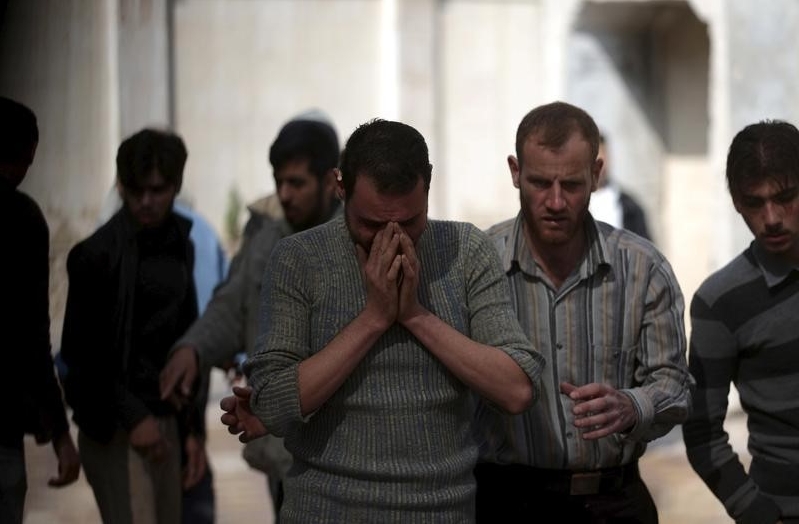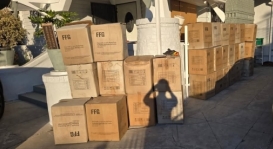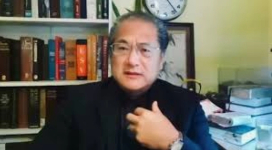
Christians returning to their hometowns as Iraqi and Kurdish security forces continue to liberate formerly held ISIS territory are dismayed by the devastation left behind by the terrorist group - but have vowed to rebuild their cities.
CBS News reports that on Sunday, dozens of Christians returned home to Keramlis, a Christian town on the Nineveh plains retaken three weeks ago as part of the push for Mosul. The militants overtook the predominantly Christian city and those surrounding it two years ago, giving Christians and other religious minorities three choices: pay a tax, convert to Islam, or die.
During their occupation of the city, ISIS militants looted Christian homes and desecrated churches, even turning them into their training camps. Propaganda photos released by the group showed militants vandalizing monasteries and churches, smashing statues and replacing the cross with their black flag of terror.
Thus, what should have been a joyous occasion was one of sorrow, as Christians returned to their parish only to discover everything had been destroyed - including the statue of the Virgin Mary, which militants had decapitated before they left.
The confessional of St. Addai church had been turned into a closet, a tomb had been desecrated, red prayer benches were burned, according to the outlet.
"First when you see it of course it's unsettling, and then you cry because of the situation here and the conditions we are living in now," 54-year-old woman, Almaz Sleiman said through tears. "Honestly I cannot describe the way I feel."
Nevertheless, the Rev. Thabet Habib recited prayers, guarded by armed Assyrian Christian militiamen, known as the Nineveh Plain Protection Units, before ringing the church bell for the first time in more than two years.
"It was amazing, I got goose bumps. The bell for us means a great deal," said Sahir Shamoun, who attended the service along with his wife. However, he expressed little hope there is no future for Christians or minorities in the Middle East, but said they are determined to keep fighting.
"You put the cornerstone for your home, but still you know it's not yours," he said. "But we are stubborn people, we will keep building."
As earlier reported, Father Thabet brought a cross, the size of a man, covered with flowers, with him when he returned to his home village earlier this month.
Undeterred by the damage caused to his parish, the priest climbed Barbara Hill, next to his village, and planted the cross firmly in the ground overlooking his hometown.
"I am so happy I can do this. I'm smiling from cheek to cheek and I weep tears of joy at the same time. This is the trip I have been praying for, for two years now," he said, according to World Watch Monitor.
"My dream is to bring all the Christians back to this village. Then we will worship outside on Barbara Hill; we will have the Eucharist in the open air. Everybody will see that this is the Church; this is the Body of Christ; this is Christian land. That is my dream - to give a testimony to the world," he said.
The Gospel Herald reported earlier in November that for the first time in two years Iraqi Christians were able to celebrate mass in Qaraqosh, another town retaken from ISIS, at the Church of the Immaculate Conception that had been partially destroyed by the terror group.
At the time, Father Ammar reinstated the cross on his church, helped by Christian soldiers guarding the village.
"After being away for exactly 811 days, after being attacked by the forces of darkness and evil, we have come back to worship in freedom," he said, and shared he was able to locate 40 ancient documents from his church's history, untouched by IS.
"I brought those back to our people in Erbil. For us those documents are our link with our history and are therefore very important," he said.







